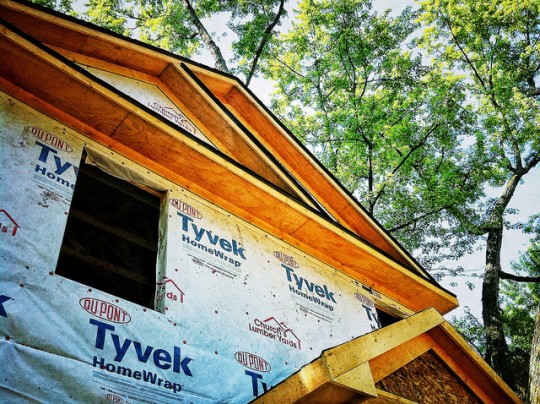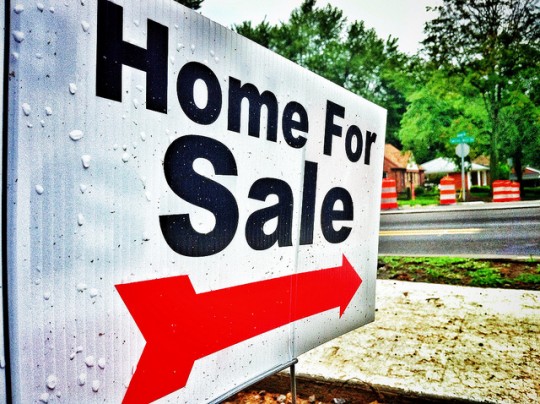Nearly twice as many Americans say they’d prefer to buy a new home over a previously owned house, according to the results of a new survey from Trulia. In the poll, 41 percent of respondents said they’d strongly or somewhat prefer to buy a newly built home, while just 21 percent said they’d rather buy an existing home. But despite their preference, survey participants who said they wanted to buy a new house also said they weren’t willing to pay the extra cost. In fact, just 46 percent said they were willing to pay at least 20 percent more to buy a newly built home. Among the most popular reasons cited for a preference for new homes, modern features such as bigger closets, kitchen islands, and radiant floor heating was number one. Participants also said they would prefer to buy new because of the ability to customize the house and the fact that they’d spend less on maintenance and repairs over time. Jed Kolko, Trulia’s chief economist, said fewer people prefer existing homes but those that do are drawn to their traditional features and locations in older, established neighborhoods. More here.
Tag Archive for respondents
Potential Home Buyers Get Ready To Buy
As confidence in the economy grows, so do the number of potential home buyers that say they’re ready to enter the housing market. According to a new survey from PulteGroup, one of the nation’s largest homebuilders, 74 percent of Americans say the economy has remained steady or improved in the last year and 57 percent think now is a good or excellent time to purchase items they need or want. And buying a home ranks high on the list of things Americans want. Among respondents, 67 percent said they plan to purchase a home in the future with 32 percent looking to buy within the next two years. Margaret Gramann, senior vice president of sales for PulteGroup, said Americans have a growing sense of optimism that the housing market is improving and that these positive changes may be sustainable. And that growing sense of optimism has boosted their interest in buying a home, with 41 percent of respondents indicating that their interest has increased over the past year. Needing more space and the view that owning a home is a smart financial investment were the top two reasons cited by participants as spurring their interest in buying a home. More here.
Survey Asks Recent Buyers What They’d Do Differently
A new survey asked recent home buyers what they’d change if they could go through the buying process all over again. The independent survey – conducted by Research Now – polled 807 new homeowners about how prepared they felt during their home search and what they’d change about the home they eventually purchased. According to the results, 56 percent of respondents said they wish they had more knowledge about the financial aspects of buying a home, specifically making an offer and negotiating, closing on the house, and financing their home. At the time of the purchase, however, 90 percent said they felt prepared. Also, 34 percent said their home cost more than they expected and 80 percent said they considered their home move-in ready – though three quarters of them eventually renovated or had plans to renovate in the near future. A number of recent buyers also said they’d buy a different home altogether if they had a second chance, with 39 percent saying they’d buy a home in another neighborhood or of a different size or price. More here.
69% Of Americans Say Now Is The Time To Buy
Though the housing market’s momentum slowed over the winter, Americans’ attitudes about buying and selling homes continues to move in a positive direction. In fact, according to Fannie Mae’s March 2014 National Housing Survey, 69 percent of Americans say now is a good time to buy a house and the number who say it’s a good time to sell increased 4 percent from the month before. Doug Duncan, senior vice president and chief economist at Fannie Mae, said there are several positive signs going into this year’s spring home buying season. Compared to last year, consumers are less pessimistic about their personal finances and more optimistic about the current selling environment and their ability to get a mortgage, Duncan said. For example, in the most recent survey, 52 percent of respondents said they thought it would be easy for them to get a home mortgage, which is an all-time survey high. The share of participants who said they’d prefer to buy rather than rent was also up, reaching 68 percent. Still, there is lingering uncertainty about economic conditions and many Americans continue to believe the economy is on the wrong track. Fannie Mae, however, expects a pickup in economic growth this year, which may boost the confidence of those still pessimistic about economic conditions and the housing market. More here.
Recovery Continues Despite Recent Volatility
Consumer attitudes about the economy and housing market have been up-and-down over the past few months. But despite the volatility, Fannie Mae’s February 2014 National Housing Survey finds that the overall outlook among Americans remains positive. Doug Duncan, senior vice president and chief economist at Fannie Mae, said it’s similar to the noisy economic and housing data published over the past few month. The housing recovery is continuing, according to Duncan, and the month-to-month changes in respondents’ perceptions of home-price expectations or the ease of getting a mortgage are a reflection of short-term factors rather than the long-term trend. Generally, Americans’ attitudes about economic conditions and the housing market are in positive ranges. In fact, the percentage of participants who said now is a good time to buy a home was up 3 percent in February, reaching 68 percent of survey respondents. Expectations for home prices and mortgage rates also rose, while the share of Americans who feel the economy is on the right track and expect their personal financial situation to improve over the next year fell. More here.
Americans Increasingly Positive About Housing
The number of Americans who have a positive perception of the current housing market has improved significantly from a year earlier, according to Fannie Mae’s December National Housing Survey. The year-over-year gains reflect an increasingly strong recovery, despite a dip in sentiment during the fall. For example, the percentage of respondents who feel it’s a good time to sell a house rose from 21 percent to 33 percent over the last year. The percentage of participants who said they felt it would be easy to obtain a home mortgage also increased over the past 12 months, from 45 percent last year to 50 percent in the most recent survey. Doug Duncan, senior vice president and chief economist at Fannie Mae, said consumer attitudes about the ease of getting a mortgage today are at their highest level in the survey’s three-and-a-half-year history. According to Duncan, that improvement should help offset the effects of higher mortgage rates and support a continued but measured housing recovery as we move through 2014. Also, the number of Americans who believe now is a good time to buy a home jumped to 67 percent and the percentage of respondents who feel their personal financial situation will get better in the next year was up four points to 42 percent. More here.
Realtor Report Finds Optimistic Outlook
According to a monthly survey of Realtors, market conditions are still good, though not as strong as before. The survey – which measures confidence in the current market and expectations for the future – provides monthly information about buyer/seller traffic, price trends, buyer profiles, and issues affecting the real-estate market. Despite little change in overall perception from October to November, Realtor confidence in the market for single-family homes over the next six months jumped four points, rising to 64 from 60 in October. The survey is scored so that any number above 50 indicates moderate market conditions. According to respondents, buyer traffic slowed in late autumn but is expected to pick up now that the holidays are over and the spring-selling season is only a few months away. Also in the report, a seasonal slowdown in home prices combined with steady mortgage rates and rising incomes has lead to a slight boost in affordability, though the overall trend remains down. More here.







